Different oil comes with different ingredients. Some of them are easily mixed with other oils but not all. Gear oil and engine oil are two different oils in the automobile industry, and of course, they have different ingredients. People sometimes wonder whether they can mix these two oils or not.
For mixing these two oils, you have to look at the chemical composition of gear and engine oil before mixing them. So, how can you know if the chemical composition is perfect for mixing or not? To know that, you should break down the gear and engine oil chemical composition.
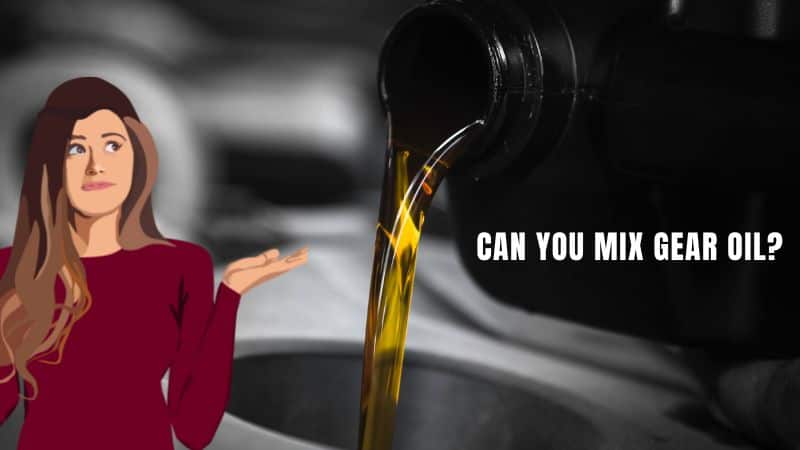
Can You Mix Gear Oil with Engine Oil?
Undoubtedly, you will get different functions and ingredients from gear and engine oil. There are lots of controversies in the automobile industry about their mixing.
However, after proper checking of these two oils’ chemical compositions, you will narrow your mind and make the right decision.
Motor Oil vs Gear Oil: An Overview
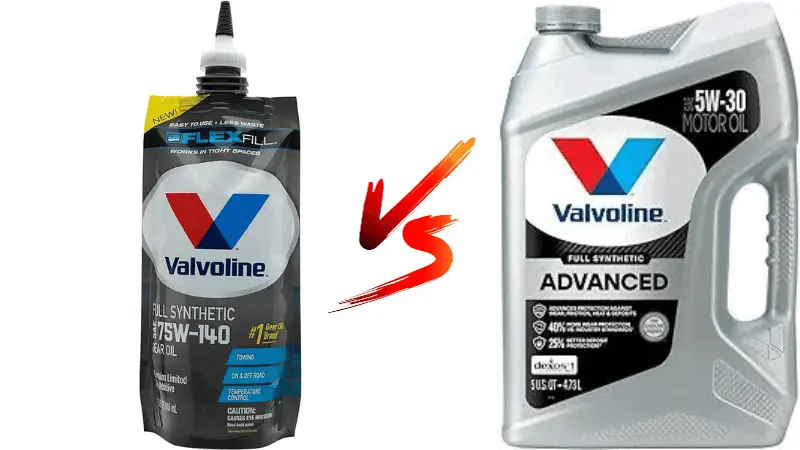
Understanding the distinct roles and characteristics of motor oil and gear oil is crucial for ensuring the proper maintenance and performance of a vehicle. While both types of oils are essential in keeping vehicle components functioning smoothly, they are formulated with specific applications in mind. Motor oil is primarily designed for the high-demand environment of an engine, whereas gear oil is tailored to protect and maintain the gear systems. This section delves into the key differences between motor oil and gear oil, exploring their unique properties, applications, and the vital roles they play in the longevity and efficiency of your vehicle’s mechanical systems.
- Purpose and Application:
- Motor Oil: Primarily used in engines to lubricate moving parts like pistons, crankshafts, and valves. It’s designed to handle the high heat and combustion by-products typical in engines.
- Gear Oil: Used in transmissions, differentials, and gearboxes. It’s formulated to cope with the high pressure and shear forces prevalent in gears.
- Viscosity and Thickness:
- Motor oils are generally thinner and have a lower viscosity, suitable for the fast-moving parts of an engine.
- Gear oils are thicker with a higher viscosity to form a durable lubricating film over gear surfaces, protecting against wear and bearing loads.
- Additives:
- Motor oil contains detergents, dispersants, antioxidants, and more, to keep the engine clean and protect against oxidation and corrosion.
- Gear oil includes additives like extreme pressure (EP) agents and anti-wear additives that are crucial for handling the metal-to-metal contact in gears.
- Temperature Resistance:
- Motor oils are designed to maintain a stable viscosity across a wide temperature range, ensuring proper engine lubrication in various operating conditions.
- Gear oils are formulated to resist breakdown under high temperatures and maintain consistency under heavy load conditions.
- Compatibility with Materials:
- Motor oils are made to be compatible with the seals, gaskets, and metals found in engines.
- Gear oils are formulated to not damage the brass or copper alloys often found in manual transmission components.
- Functionality Differences:
- Motor oil is primarily for reducing friction, cooling engine parts, and keeping the engine clean.
- Gear oil’s primary role is to cushion gears and absorb the shock and stress of heavy loads and repeated impacts.
- Change Intervals:
- Motor oil typically requires more frequent changes due to contamination and breakdown from engine heat and by-products.
- Gear oil generally has longer service intervals, as it operates in a less volatile environment.
Now lets dive deeper!
Chemical Composition and Usage: Gear Oil
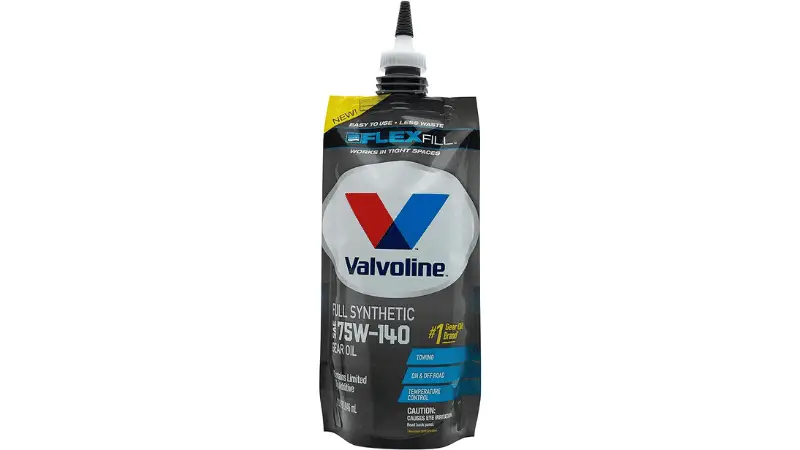
Typically, gear oil is designed with two components such as base oil and additives. Gear oil is thicker and always has high viscosity.
The main goal of this oil is smoothly gearing the car. And it is designed for lubricant gear. Overall, gear oil cools down your vehicle gearbox and prevents rust from running the vehicle for a long-time.
Chemical Composition and Usage: Engine Oil
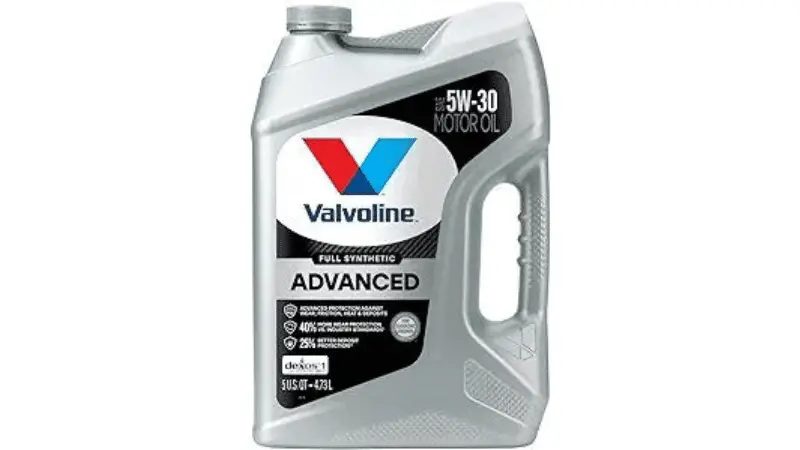
Unlike gear oil, engine oil comes with a high amount of base oil and a small number of additives. On the other hand, it has less viscosity than engine oil.
Engine oil is ready to provide the vehicle engine with long-life performance. Because it protects the engine from rust, heat, and so on. Your vehicle engine smoothly runs when you apply this engine oil.
Now, you know about their chemical composition and usage. But what happens when you mix them? Let’s find out.
What happens when you mix gear oil with engine oil?
When you have different types of lubricant and gear oils, it is a bad idea to mix. It can spell disaster for the vehicles. This is the main reason why you should avoid mixing lubricant and engine oil.
Moreover, mixing gear oil with engine oil may damage the engine and gearbox. Furthermore, you may add a small amount of lubricant with a vast amount of engine oil without causing any problems. When lubricant comes with a lower volume and adding oil comes with high viscosity, you can add without getting damaged problems.
Is It Okay to Mix Gear Oil with Engine Oil?
Automobile experts suggest that it is a bad idea to mix gear oil with engine oil. Though you will add a small amount of gear oil on the engine oil to avoid damage, it should be avoidable.
On the contrary, gear oil comes with more viscus than engine oil, and when you mix them with each other, the viscosity will resultant oil changes.
If you use resultant oil on your gearbox, the gearbox or the engine oil pump may damage or harm, which you need to spend a lot of money to repair.
Moreover, the main task of the gearbox is to transmit power smoothly, which comes with high viscosity. Furthermore, this high viscosity damaged the engine and slowly killed all of its functions of the engine.
Mixing them with small quantities is fine. You can apply a minimal amount of lubricant or gear oil on the engine oil without getting any bugs. But, you have to avoid using large amounts of lubricant or gear oil on the engine oil.
Is Engine Oil and Gearbox Oil The Same?
No, engine oil and gearbox oil are not the same. They are formulated differently to meet the specific requirements of their respective mechanical components. Engine oil, designed for use in the engine, is tailored to handle high temperatures and prevent build-up of combustion by-products. It’s typically thinner with a lower viscosity to accommodate the rapid movement of engine parts.
On the other hand, gearbox oil, or gear oil, is used in the gearbox, differential, and transmission systems. It’s a thicker lubricant with a higher viscosity and special additives to withstand the heavy loads and shear forces present in gear mechanisms. Using the wrong type of oil in either system can lead to inadequate lubrication, increased wear, and potential damage to the vehicle. Therefore, it’s important to use the specific oil recommended by the vehicle manufacturer for each system.
Difference Between Gear Oil and Engine Oil
These two oils are popular, and of course, they have plenty of similarities. Though they have lots of similarities, you will still find some differences between these two oils.
Viscosity
Gear oil comes with high viscosity than engine oil. The chemical composition of gear oil comes with high viscosity to provide the engine with excellent performance. On the other hand, engine oil comes with lower viscosity than gear oil.
Tasks
Gear oil and engine oil are two different things, and their task is also different. However, gear oil works for your vehicle gearbox for smooth gearing. Similarly, engine oil works for the engine to protect the engine from rust, dust, and other harmful things. The engine oil also makes the engine a long-life performer.
Design
Gear oil is specifically designed for protection, lubricant, and your vehicle’s cool gearing system. In addition, engine oil is designed to protect your car’s engine from gasoline and additives.
A Comparison Chart of Gear Oil and Engine Oil
| Gear Oil | Engine Oil |
|---|---|
| Performance grades of gear oils are generally GL4, GL5, or GL6. | Engine Oil change interval is no longer like gear oil or transmission oil change interval. |
| Designs for protecting the gearbox | The manufacturer of engine oil designs the oil to protect the engine from rust, corrosion, and other harmful elements to make the life longer. |
| Make the vehicle’s gearing system cool for a smoothly run | Avoid harmful things which come from additives and gasoline |
| Gear oil comes with high viscosity than engine oil, eg. 80W90 or 75W140 | Engine oil comes with lower viscosity than gear oil, eg. 5W30. |
| The Gear Oil Change interval is longer than the engine oil interval. | Engine Oil change interval is not longer like gear oil or transmission oil change interval. |
What fluid can be mixed with engine oil for recycling
You can mix all types of DFS, insoluble oils, and mineral oils with engine oil for recycling. Synthetic oil and hydraulic oil are easily mixed with engine oil. The ingredients and chemicals of the oil accept them because of similar ingredients.
For recycling, you will apply the above-listed oils with your engine oil. Most automobile experts suggest mixing hydraulic and transmission fluids. But it would help if you were careful when you want to mix gear lubricant with engine oil because gear lubricant mixing with engine oil may harm your vehicle.
Is gear oil the same as motor oil?
You may think that gear oil and motor oil are the same, but they are not. Gear oil is specifically designed for protecting and cooling the gearing system. On the other hand, motor oil is designed to protect your vehicle motor and also protects the engine from gasoline and additives.
The chemical components also have differences. The gear oil comes with high viscosity than motor oil. There is no doubt that they have visible differences.
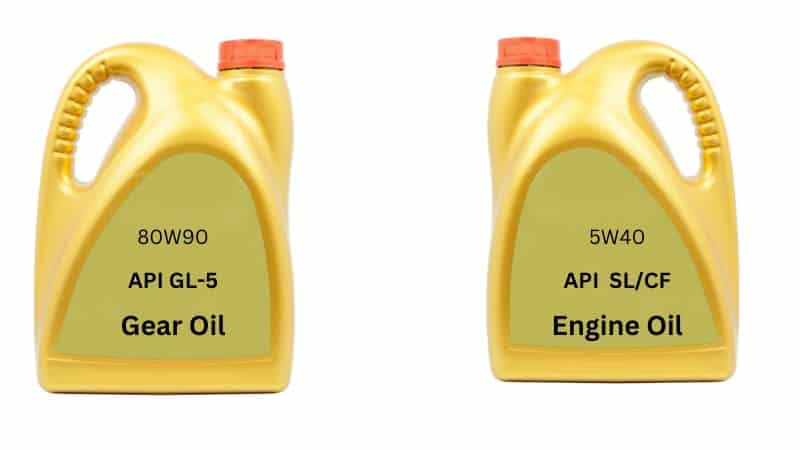
Can I Use Engine Oil As Gear Oil in Scooter?
The official answer is no. It is not recommended that you apply engine oil on the gear oil for the scooter. It may damage the scooter engine and gearbox.
Engine oil and gear oil are two different types of oils. If you think that you don’t have any options and you have to mix them, you can add a very small amount of gear oil to the engine oil. It is probably safe to mix very little quantity of gear oil on the engine oil for your scooter.
FAQs (Frequently Ask Questions)
Q: What happens if I put gear oil in my engine?
Answer: When you put a large quantity of gear oil on the engine, your engine is probably damaged. On the other hand, it kills the engine function slowly, and you don’t get performance well. Mixing a small amount of gear oil on the engine may be safe.
Q: What happens if you mix transmission fluid with engine oil?
Answer: ATF may be one of the best solutions as an alternative to viscosity oil. Viscosity is truly an essential ingredient of the oil. So, you can mix transmission fluid with engine oil without getting any problems. But, it would be suggested that you mix a very little transmission fluid with engine oil.
Q: Is gearbox oil the same as engine oil?
Answer: Gearbox oil and engine oils have many differences. You will get some core and visible differences between these two oils. For example, engine oil is designed to protect the engine from rust and wear. On the other hand, gearbox oil is designed to cool the gearbox system and smoothly run.
Wrapping Up!
Can you mix gear oil with engine oil? The straightforward answer is no. It is a bad idea to mix them together. They have different amounts of viscosity, different designs, and working capabilities. Both of these oils are designed for different purposes, and their tasks are also different.
Overall, gear oil is specifically designed to protect gear and cool down the gearbox system. The ingredients of a gear oil are also different. So, you should avoid mixing gear oil with engine oil. But, if you think that you have no option to mix them, you can add very little amount of gear lubricant to the engine oil.
READ ALSO:
